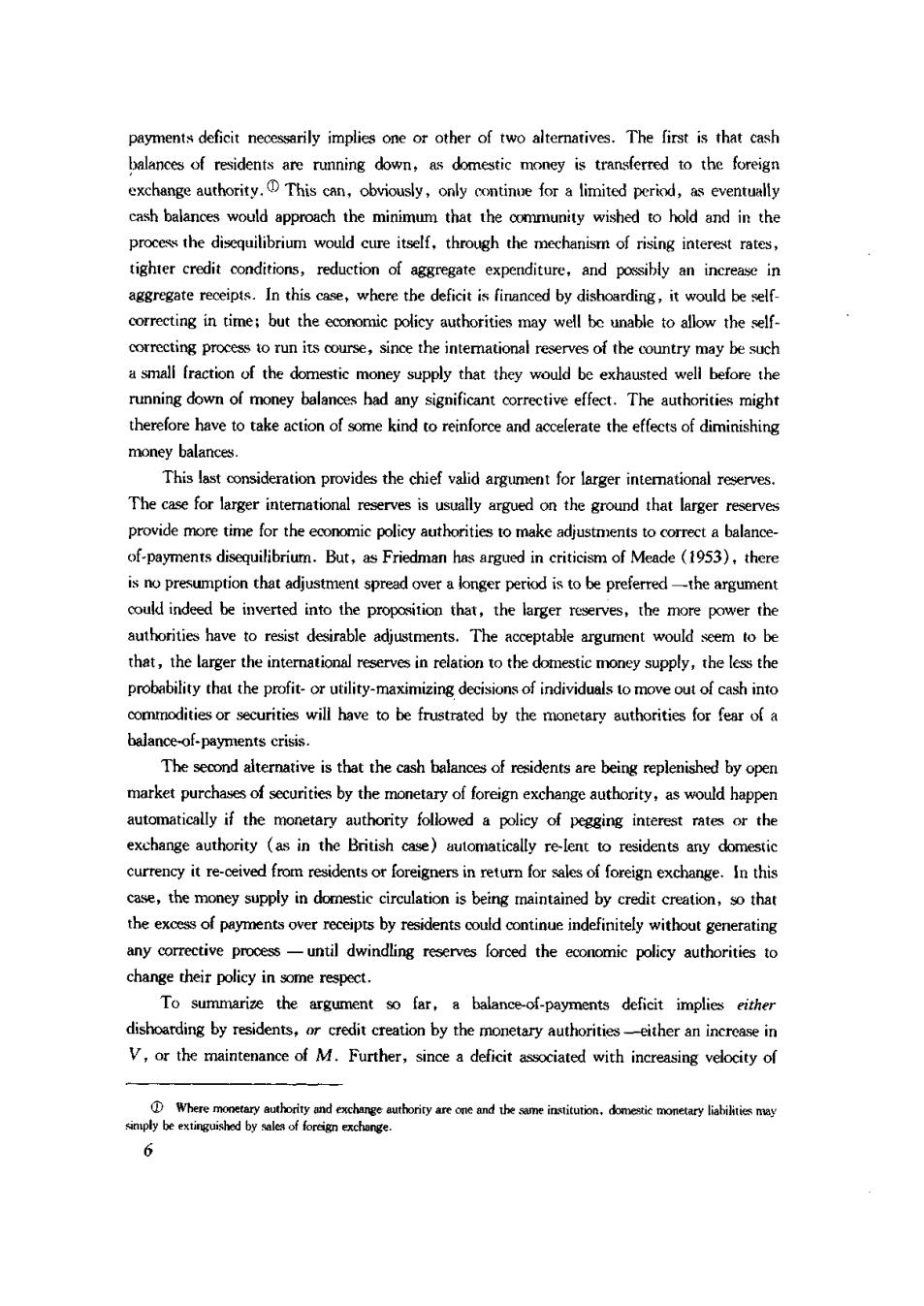正在加载图片...

payments deficit neesrily implics one or other of two altematives.The first is that cash balances of residents are runing down,domestic money is transferred to the foreign exchange authority.This can,obviously,only continue for a limited period,as eventually cash approch the minimum that wished tohold and in the process the disequilibrium would cure itself,through the mechanism of rising interest rates, tighter credit conditions,reduction of aggregate expenditure,and possibly an increase in correcting in time:but the economic policy authorities may well be unable to allow the self ,since the intemational ervesof the be such small fraction of the domestic money supply that they would be xhausted well before th running down of money balances had any significant corrective effect.The authorities might therefore have to take action of some kind to reinforce and accelerate the effects of diminishing money balances This last consideration provides the chief valid argument for larger interational reserves. The case for larger is usually arguedon the ground that larger reserve provide more time for the economic policy authorities to make adjustments to correct a balance of-payments disequilibrium.But.as Friedman has argued in criticism of Meade (1953).there is presumption spread overalonger period preferred-theargumen could indeed be inverted into the proposition that,the larger reserves,the more power the authorities have to resist desirable adjustments.The acceptable argument would be that,the larger the interation relation to the domestic money supply,the less the probability that the profit-or utility-maximizing decisions of individuals to move out of cash into securities will have to be frustrated by the moneary authorities for fear of a balanceof-payments crisis. The second alternative is that the cash balances of residents are being replenished by open market purchasesf by the monetary of foreign exchange authority,aswould happen automatically if the monetary authority followed a policy of pegging interest rates or the exchange authority (as in the British case)automatically re-lent to residents any domestic eurrency it re-ceivedont foreigners exchange.In this case,the money supply in domestic circulation is being maintained by credit creation,so that by without generating any corrective process-until dwindling reserves forced the economic policy authorities to change their policy in some respect. To summarize the argumentso far.abalance-of-payments deficit implies ithe dishoarding by residentsrcredit creation by the monetary authorities-cither an inc in V,or the maintenance of M.Further,since a deficit with increasing velocityof utbority are one and the saume institution.domestic monetary liabilities mey 6